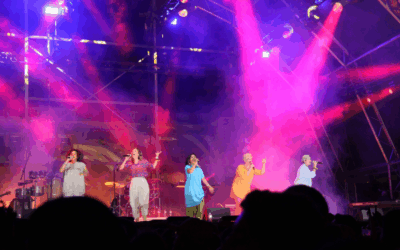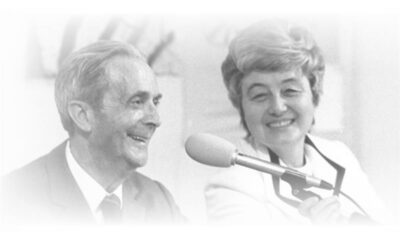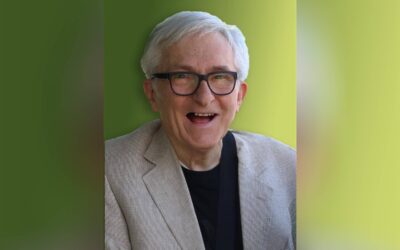 Like all focolarine, Lina Velasquez lives in a focolare, the heart of the wider community. She lives with five others on the outskirts of Guatemala City. In her country too, people and ethnic groups have met serious conflict with much suffering, pain and, at times, discrimination. How is it living with other focolarine – a Guatemalteca ladina, which is another ethnic group, a Nicaraguan, a Mexican and a Salvadoran – a world in miniature. . . ? What helps inculturation among you? The love among us, with the measure that Jesus asks of us, that is, being to be ready to give our lives for each other, even in small everyday things. At times, out of love, it’s better to stay silent, at times it’s better to say what’s in our hearts. It helps me a lot to understand that the other person is different from me and so there is something for me to learn from everyone. I can be a person, someone who loves, not an “indigena” who wants everyone else to understand her. The inculturation among us is a witness to those who know us and a contribution to the elimination of discrimination. I feel fortunate to have a calling that unites us and that is mutually enriching. What work do you do? I’m a teacher at a school for “ladino” and indigenous children. This helps me to love everyone without distinctions, without prejudice, without the fear of being who I am. Each morning we toss the dice of love. It’s a very original toy that we use with the children: each side of the dice has a sentence, like: “Love everyone”, “Love your enemy”, “Love each other” , “Make yourself one”, “Be the first to love” “See Jesus in your neighbour”. We all try to live the sentence that comes up each day. It also helps me, because when I don’t take part, the children ask me: “Why do you say we have to do it, but you don’t live it?” One morning, we tossed the dice and the sentence that came up was: “Love your enemy”. Precisely on that day, the father of one of the students reprimanded me saying things that simply weren’t true. As I listened to him, I asked Jesus to help me forgive him and to see this “enemy” with new eyes, even if it cost me some effort to do so. The next morning that father came up to me and I greeted him with a nice smile. He was so surprised and he came closer to me and said: “Truly, I am heartily sorry and I ask you to forgive me. Today I realized that you are a real Christian person, and capable of understanding me.” From then on his attitude changed. Some of the parents don’t know me, especially when I’m wearing my traditional dress and, mistaking me for the cleaning lady, they don’t allow the children to greet me and embrace me. But the children are learning to love, even me, and they take this discovery home with them. It’s a freedom which I wish all indigenous people could experience, those who don’t wear their native dress and try to hide their origins. I’m glad to be working in this school, because I feel that I’m helping to form new people, that I’m able to love without prejudice, because they feel that they are children of God, and that each culture has great richness to offer to others. Your language is Kaqchikel. Is it still spoken today? My parents didn’t speak Kaqchikel, but my grandparents did, because they had never learned Spanish. The majority of the people in my community speak it among themselves, but never in the city because they are ashamed. Now with the Education reforms in Guatemala, the young people have begun to appreciate the language and also the precious indigenous culture. I’m doing my Master Degree on it, so that I can know it well and help my people to understand that the values I live can be a gift. I’ve realized that the spirituality of unity must reach my people in my language, so that they can understand it better.
Like all focolarine, Lina Velasquez lives in a focolare, the heart of the wider community. She lives with five others on the outskirts of Guatemala City. In her country too, people and ethnic groups have met serious conflict with much suffering, pain and, at times, discrimination. How is it living with other focolarine – a Guatemalteca ladina, which is another ethnic group, a Nicaraguan, a Mexican and a Salvadoran – a world in miniature. . . ? What helps inculturation among you? The love among us, with the measure that Jesus asks of us, that is, being to be ready to give our lives for each other, even in small everyday things. At times, out of love, it’s better to stay silent, at times it’s better to say what’s in our hearts. It helps me a lot to understand that the other person is different from me and so there is something for me to learn from everyone. I can be a person, someone who loves, not an “indigena” who wants everyone else to understand her. The inculturation among us is a witness to those who know us and a contribution to the elimination of discrimination. I feel fortunate to have a calling that unites us and that is mutually enriching. What work do you do? I’m a teacher at a school for “ladino” and indigenous children. This helps me to love everyone without distinctions, without prejudice, without the fear of being who I am. Each morning we toss the dice of love. It’s a very original toy that we use with the children: each side of the dice has a sentence, like: “Love everyone”, “Love your enemy”, “Love each other” , “Make yourself one”, “Be the first to love” “See Jesus in your neighbour”. We all try to live the sentence that comes up each day. It also helps me, because when I don’t take part, the children ask me: “Why do you say we have to do it, but you don’t live it?” One morning, we tossed the dice and the sentence that came up was: “Love your enemy”. Precisely on that day, the father of one of the students reprimanded me saying things that simply weren’t true. As I listened to him, I asked Jesus to help me forgive him and to see this “enemy” with new eyes, even if it cost me some effort to do so. The next morning that father came up to me and I greeted him with a nice smile. He was so surprised and he came closer to me and said: “Truly, I am heartily sorry and I ask you to forgive me. Today I realized that you are a real Christian person, and capable of understanding me.” From then on his attitude changed. Some of the parents don’t know me, especially when I’m wearing my traditional dress and, mistaking me for the cleaning lady, they don’t allow the children to greet me and embrace me. But the children are learning to love, even me, and they take this discovery home with them. It’s a freedom which I wish all indigenous people could experience, those who don’t wear their native dress and try to hide their origins. I’m glad to be working in this school, because I feel that I’m helping to form new people, that I’m able to love without prejudice, because they feel that they are children of God, and that each culture has great richness to offer to others. Your language is Kaqchikel. Is it still spoken today? My parents didn’t speak Kaqchikel, but my grandparents did, because they had never learned Spanish. The majority of the people in my community speak it among themselves, but never in the city because they are ashamed. Now with the Education reforms in Guatemala, the young people have begun to appreciate the language and also the precious indigenous culture. I’m doing my Master Degree on it, so that I can know it well and help my people to understand that the values I live can be a gift. I’ve realized that the spirituality of unity must reach my people in my language, so that they can understand it better.
SSA




0 Comments